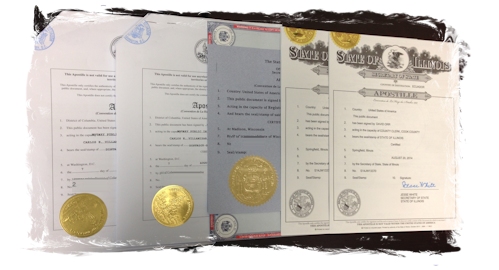Apostille: Streamlining International Document Authentication

In an increasingly interconnected world, the need for cross-border document authentication is on the rise. Enter the Apostille—an official certificate that simplifies the process of validating documents for use in foreign countries. In this blog post, we delve into the concept of Apostille, its significance, and how it expedites international document authentication.
-
Understanding the Apostille: What Is It and How Does It Work? We begin by explaining the Apostille itself—a standardized certificate issued by a competent authority that verifies the authenticity of a document for use in countries that are party to the Hague Apostille Convention. We delve into the purpose of Apostille, its legal implications, and the countries that recognize its validity.
-
The Benefits of Apostille: Simplifying Document Authentication Here, we explore the advantages of Apostille for individuals and businesses. We highlight how Apostille eliminates the need for complex and time-consuming document authentication procedures, reducing bureaucracy and ensuring quicker recognition of documents in foreign jurisdictions.
-
When Is Apostille Required: Common Use Cases In this section, we outline common scenarios where Apostille is required. From educational documents, such as diplomas and transcripts, to legal documents like birth certificates, marriage certificates, and power of attorney documents, we explain how Apostille is essential for international acceptance.
-
Obtaining an Apostille: The Process Simplified We guide readers through the steps involved in obtaining an Apostille. From identifying the competent authority responsible for issuing Apostille in their country to preparing the necessary documents and submitting the request, we break down the process into clear and manageable steps.
-
Working with Apostille Services: Simplifying the Journey For those seeking assistance, we highlight the convenience of working with professional Apostille services. We discuss how these services can help navigate the intricacies of Apostille requirements, handle document preparation, and ensure a smooth and efficient process from start to finish.
Conclusion: In conclusion, the Apostille serves as a critical mechanism for streamlining international document authentication. By simplifying the validation process, it reduces red tape, saves time, and enhances the recognition of documents in foreign countries. Whether you are pursuing education abroad, engaging in international business transactions, or dealing with legal matters overseas, understanding the value of Apostille and its role in simplifying document authentication is essential. Embrace the power of Apostille and unlock the seamless acceptance of your documents across borders.

